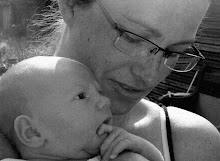Mycoplasma, Ureaplasma and Infertility
Mycoplasma, Ureaplasma and Infertility
Mycoplasmas are the smallest known free living organisms. Of over 100 species identified, 3 colonise the genitourinary tract of humans. Mycoplasma hominis and Ureaplasma urealyticum may be found in the cervix of 40% - 80% or vagina, 21% - 53% of women. Mycoplasma genitalium may cause urethritis in males.
Bacterial and fungal cultures are often conducted on the female's cervical mucus. Infection with certain microorganisms, including mycoplasma, can lead to infertility. Mycoplasma are small bacteria like organisms that are suspected to cause several urologic, obstetric and gynecologic disorders, such as pelvic inflammatory disease, urethritis and pregnancy loss. Women whose reproductive tracts are colonized with Mycoplasma have higher rates of miscarriage. The organism lives in the male prostate gland and is transmitted during intercourse.
Mycoplasma Hominis (M. Hominis) can cause infertility by causing PID (Pelvic Inflammatory Disease), urogenital infections and Septicemia.
In women colonization is linked with younger age, lower socio economic status, sexual activity with multiple partners, black race and oral contraceptive use. They may be transmitted to about 40% of infants born to infected mothers.
Mycoplasmas tend to produce slowly progressive chronic disease. They are extra cellular organisms which do not penetrate past mucosal surfaces. When normal host defenses are impaired, dissemination of disease may occur.
Infection and fertility
Genitourinary infections associated with Mycoplasma hominis and Ureaplasma urealyticum include: nongonococcal urethritis, pelvic inflammatory disease, infertility, pyelonephritisand urinary calculi.
A study reported (March 3, 1983) in the New England Journal of Medicine noted success in achieving pregnancies for previously infertile couples by treating the husbands for a relatively minor but prevalent social disease caused by the microorganism T mycoplasma or Ureaplasma urealyticum. This infection of the genital tract was treated with a tetracycline type antibiotic. Researchers believe that the mycoplasma infection may be a major cause of infertility.
A recent study found a significantly higher frequency of U. urealyticum infection was found among infertile males (39%) compared to controls (9%). It is shown to adhere to the membranes of the sperm and germ cells with subsequent immune antibody reaction. It may also directly impair spermatogenesis, and children of men infected may be at risk of low birth weight.
Another study in1996 took cervical swabs from infertile couples and compared the results to fertile couples, U. urealyticum infections were detected in 35.9% of the infertile group and 15.6% of the fertile group. After treatment of positive patients the pregnancy rates were higher in those patients who cleared compared to those who remained positive for the infection.
Infection and pregnancy
Infection associated with pregnancy shows strong links to miscarriage if the organisms are found in the placenta or endometrium. This may occur if mycoplasma attach to sperm. Both organisms may invade the amniotic sac in the first 16 to 20 weeks of gestation. Isolation of ureaplasma from the placenta is associated with chorioamniontitis, funisitis, stillbirth, perinatal morbidity, premature labour and low birth weight. Investigations into recurrent pregnancy loss found Mycoplasma hominis and Ureaplasma urealyticum to be one of 3 major causes.
M. Hominis is a proven cause of post partum endometriosis.
Infection and the new born
Mycoplasma hominis and Ureaplasma urealyticum are causes of congenital pneumonia and other respiratory disease particularly in low birth weight infants.
Both Mycoplasma hominis and Ureaplasma urealyticum may cause meningitis in the new born.
Other manifestations include septic arthritis, subcutaneous abscesses, persistent urethritis, and chronic cystitis.
Orthodox Treatment
Drug
Mycoplasma hominis
Ureaplasma urealyticum
sulphonamides
resistant
resistant
trimethoprim
resistant
resistant
Cell wall ihibiting antimicrobials
resistant
resistant
Beta-lactams
resistant
resistant
aminocyclitols
Often resistant
Often resistant
chloramphenicol
Often resistant
Often resistant
Clindamycin
susceptible
resistant
Erythromycin
resistant
susceptible
tetracyclines
40% strains resistant
10-20% strains resistant
Treatment of 10-14 days is recommended. Sexual partners should be treated concurrently to prevent re-infection.
Natural treatment for genitourinary infections
If your seek a Naturopaths advise they will suggest a healthy diet along side of immune treatments. These may include:
Herbal douche midcycle when the cervix is open,
Internal herbal remedies of strong antimicrobial herbs and immune stimulants
Vitamin C, zinc, reishi, ****ake, antioxidants are also helpful to support the immune system
Following a Preconception Care program
Antibiotics may be necessary, retest to confirm absence of infection, must be accompanied by immuno-supportive herbs and probiotics.
Condoms can be used until treatment is effective and tests clear.
About Me

- Families and Happiness
- Well, where do I start? I could start at many stages in my life; all very exciting and adventurous in some sort of way. Probably best to start when I met my husband 10 years ago, as this was the turning point in my very emotional and dramatic life. Met Ben through work, we had a wonderful life together, very ambitious, career driven until we decided to started a family 4 years later. The fertility Journey did take 2 years to conceive but we got there eventually and conceived little Thomas, now for someone like me who has no patience what so ever this was a agonizing and stressful wait but well worth it. We moved from our home town Bournemouth to Ipswich with Ben's work, I gave up my careern and then married in Cumbria in 2009. We continued to have 2 more children very easily compared to Thomas, Jesiica and Baby Wilson.
Subscribe to:
Post Comments (Atom)
In cases like this, I think both men and women should take care of theirselves, knowing what are the possible risk of having unsafe minion with their loved ones might have a big effect on both their health. From what I have read at the l-arganine article the advice on men is to take good care of their heart and their entire body including those private parts, same goes with women too.
ReplyDeleteThank you so much Hanna, we are refraning from you know what!!! He is on another 4 weeks on antibiotics. I am getting both of us tested for infections. I am going down the herbs and vitaims route after the antibiotic!!
ReplyDelete